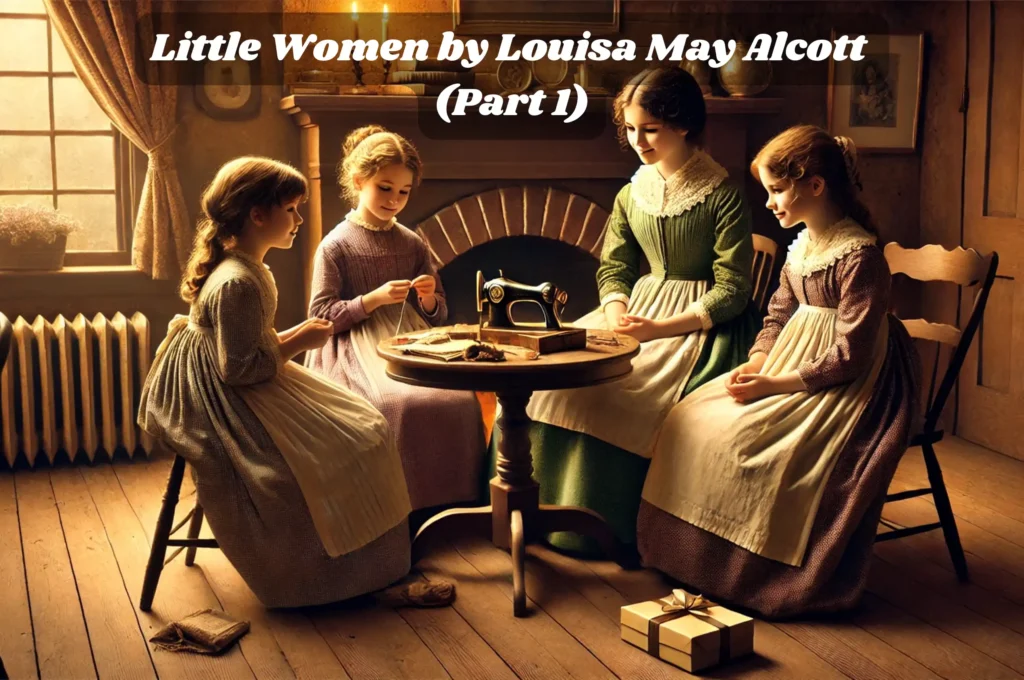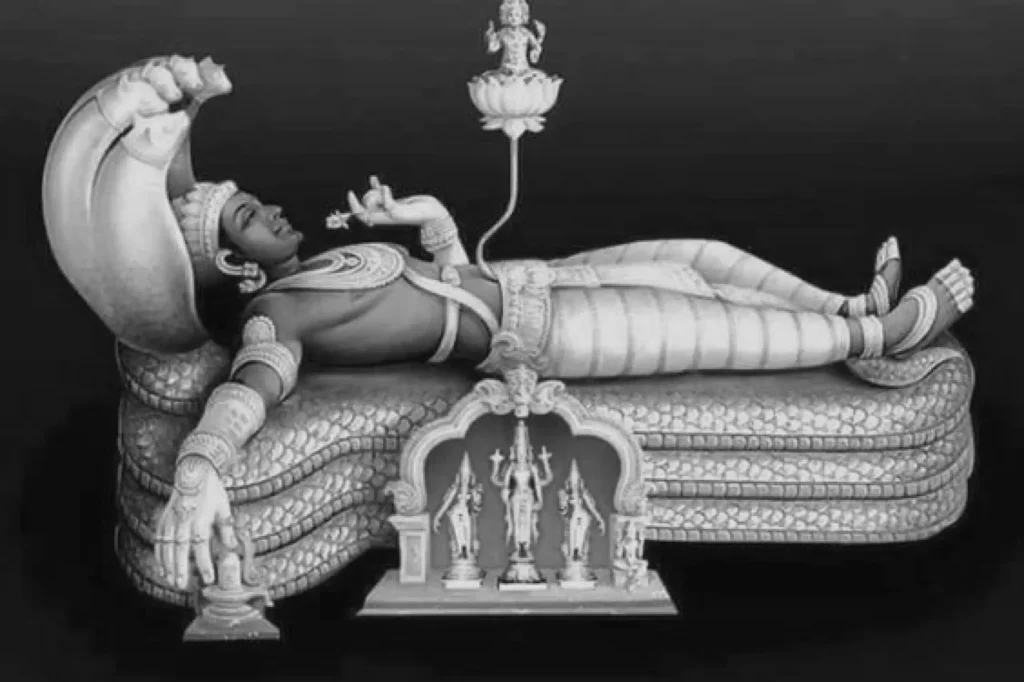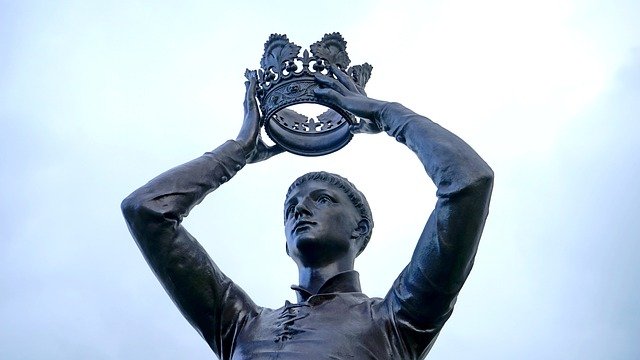Introduction to Othello
In this post read the Summary of Othello. Othello,” a tragedy penned by the eminent playwright William Shakespeare, first graced the stage in 1604. Set against the backdrop of the Venetian Republic and the island of Cyprus, the play delves deep into the human psyche, exploring themes of jealousy, betrayal, and racism. These themes, universal and timeless, render “Othello” as relevant today as it was over four centuries ago, ensuring its position as a staple in both academic and theatrical circles.
The narrative revolves around Othello, a Moorish general in the Venetian army, whose life unravels due to the manipulations of his ensign, Iago. Shakespeare’s portrayal of Othello’s descent into jealousy and madness, spurred by Iago’s deceit, serves as a poignant commentary on the destructive power of unchecked emotions and the tragic consequences of distrust. The play’s exploration of racial prejudice, embodied in Othello’s struggles as an outsider in a predominantly white society, continues to resonate in contemporary discussions about race and identity.
Historically, “Othello” reflects the Elizabethan era’s anxieties and fascinations with race and otherness. The character of Othello, a distinguished black man in a position of power, challenges the societal norms of Shakespeare’s time, making the play a groundbreaking piece of literature. Its enduring relevance is evidenced by its frequent adaptations and performances, which often recontextualize its themes to mirror modern societal issues.
Studying “Othello” offers invaluable insights into the complexities of human behavior and the societal constructs of race and power. Its intricate characters and profound themes invite readers and audiences to reflect on the darker aspects of the human condition. Thus, “Othello” remains a critical work in understanding both historical and contemporary issues, solidifying its place in the literary canon.
Summary of Othello

Table of Contents
Main Characters
The play “Othello” by William Shakespeare presents a compelling cast of characters, each integral to the unfolding drama. The titular character, Othello, is a Moorish general in the Venetian army. His distinguished military career and leadership have earned him respect and admiration, yet his racial and cultural background sets him apart in Venetian society. Othello’s deep love for Desdemona, a noblewoman of Venice, propels the central narrative. Desdemona’s unwavering loyalty and affection for Othello highlight her virtuous and compassionate nature, making her a pivotal figure in the tragedy.
Iago, Othello’s ensign, emerges as the play’s primary antagonist. His manipulative schemes fuel the conflict, as he harbors resentment towards Othello for promoting Cassio over him. Iago’s intricate deceptions and malevolent intentions drive the plot, showcasing his ability to exploit the vulnerabilities of those around him. Cassio, the newly appointed lieutenant, becomes an unwitting pawn in Iago’s machinations. Known for his courteous demeanor and professional competence, Cassio’s downfall is orchestrated by Iago’s conniving tactics.
Emilia, Iago’s wife and Desdemona’s maid, plays a crucial role in revealing the truth behind the web of deceit. Her loyalty to Desdemona contrasts starkly with her husband’s treachery. Emilia’s eventual realization of Iago’s true nature propels her to act courageously, even at great personal risk. Lastly, Roderigo, a wealthy and gullible Venetian, is manipulated by Iago’s promises of winning Desdemona’s love. His blind infatuation and willingness to serve Iago’s interests underscore the extent of Iago’s manipulative prowess.
Collectively, these characters’ intertwined relationships and motivations create a rich tapestry of human emotions and conflicts, driving the tragic events of “Othello.” Their interactions and the resulting consequences underscore the themes of jealousy, love, betrayal, and the destructive power of manipulation within the play.

Othello Act 1 Summary: Setting the Stage
The play “Othello” by William Shakespeare opens in the vibrant city of Venice, a setting that underscores the multicultural and politically charged atmosphere of the time. In Act I, the audience is introduced to the main characters and the initial conflict that propels the story forward. The act begins with Roderigo and Iago engaged in conversation. Roderigo is upset because he has been financially supporting Iago in hopes of winning Desdemona’s affection. However, Desdemona, the daughter of a Venetian nobleman named Brabantio, has secretly married Othello, a Moorish general in the Venetian army.
Iago, who harbors deep resentment towards Othello for promoting Cassio over him, begins to plot against Othello. He cunningly manipulates Roderigo and plans to exploit Othello’s insecurities. Iago’s duplicity is evident as he pretends to be loyal to Othello while simultaneously orchestrating his downfall. The first act also reveals Brabantio’s shock and outrage upon discovering his daughter’s marriage to Othello. Brabantio accuses Othello of using witchcraft to seduce Desdemona and brings his grievances before the Duke of Venice.
The Duke, however, supports Othello after hearing both sides. Desdemona is called to testify and she confirms that her love for Othello is genuine and not borne of any enchantment. This public affirmation of their union, coupled with the Duke’s endorsement, temporarily quells Brabantio’s objections. The Duke then assigns Othello to lead a military expedition to Cyprus to defend against a Turkish invasion, setting the stage for the unfolding drama.
Act I effectively establishes the key characters and their relationships, while also introducing the themes of jealousy, manipulation, and racial tension that will dominate the narrative. The stage is meticulously set for the ensuing tragedy, with Iago’s malevolent scheming poised to unravel the lives of all those involved.
Othello Act 2 Summary: The Plot Thickens
Act II of William Shakespeare’s “Othello” unfolds in Cyprus, where Iago’s malevolent schemes begin to take shape, intensifying the drama. Iago’s primary objective is to sow seeds of distrust between Othello and his wife, Desdemona. He employs devious tactics to manipulate the people around him, particularly targeting Cassio and Roderigo to further his malicious plans.
In this act, Iago cunningly convinces Roderigo that Desdemona is in love with Cassio, thereby igniting Roderigo’s jealousy and prompting him to act against Cassio. Iago’s manipulation doesn’t stop there; he then orchestrates a brawl between Cassio and Roderigo, which results in Cassio’s demotion. Cassio’s fall from grace is a critical step in Iago’s plot, as it positions Cassio as the perfect scapegoat.
Moreover, Iago advises Cassio to seek Desdemona’s help in regaining his position, knowing that this will create opportunities to feed Othello’s growing suspicions. Iago’s masterstroke comes with the introduction of a seemingly innocuous handkerchief, a gift from Othello to Desdemona. This handkerchief becomes a pivotal piece of evidence in Iago’s scheme. He ensures that it falls into Cassio’s possession, knowing that its discovery will fuel Othello’s jealousy.
The handkerchief, imbued with symbolic significance, becomes the linchpin of Iago’s plot. Its presence in Cassio’s hands is manipulated to appear as tangible proof of Desdemona’s infidelity. Through these manipulations, Iago skillfully constructs a narrative that convinces Othello of his wife’s betrayal, driving a wedge between the couple.
In Act II, Iago’s machinations are central to the unfolding drama, setting the stage for the tragic events that follow. His ability to exploit the weaknesses and emotions of those around him underscores the complexity of his character and the depth of his villainy. The act ends with Othello’s growing mistrust, a testament to Iago’s manipulative prowess.
Othello Act 3 Summary: The Seeds of Jealousy
In Act III of William Shakespeare’s “Othello,” Iago’s insidious schemes begin to bear fruit, as he skillfully manipulates Othello into doubting Desdemona’s fidelity. This act is pivotal in setting the stage for the tragic events that follow, showcasing Iago’s cunning and the destructive power of jealousy.
The act opens with a seemingly innocuous conversation between Cassio and Desdemona. Iago seizes this opportunity to suggest to Othello that there is something inappropriate in their interaction. His insinuations are subtle yet potent, planting the first seeds of doubt. Iago further manipulates the situation by advising Cassio to seek Desdemona’s help in reinstating his position, knowing this will provide more opportunities to fuel Othello’s suspicions.
Othello’s descent into jealousy accelerates during a conversation with Iago, where the latter employs reverse psychology and feigned reluctance to speak ill of Cassio. Iago’s cryptic remarks and strategic pauses exacerbate Othello’s anxiety, leading him to demand proof of Desdemona’s alleged infidelity. This is a masterclass in manipulation, as Iago balances apparent loyalty to Othello with insidious deceit.
The tension peaks in the scene where Iago fabricates a story about Cassio talking in his sleep and possessing Desdemona’s handkerchief—a symbol of Othello’s love. The handkerchief, which Iago had earlier orchestrated to be in Cassio’s possession, becomes the “ocular proof” Othello demands. This tangible evidence, though entirely contrived, convinces Othello of Desdemona’s betrayal.
By the end of Act III, Othello is consumed by jealousy and resolved to seek vengeance, showcasing the devastating impact of Iago’s manipulation. The act not only highlights Iago’s malevolent genius but also underscores the fragility of trust and the ease with which it can be shattered. The seeds of jealousy planted by Iago have now taken root, setting the stage for the tragic unraveling of Othello’s life.
Othello Act 4 Summary: The Downward Spiral
Act IV of William Shakespeare’s “Othello” marks a significant escalation in the titular character’s descent into jealousy and rage. Fueled by Iago’s relentless manipulation, Othello’s trust in Desdemona continues to erode, leading to a series of tragic misunderstandings and miscommunications.
One of the act’s critical scenes occurs when Othello angrily confronts Desdemona, demanding to see the handkerchief he once gave her as a token of his love. This handkerchief, now in the possession of Cassio due to Iago’s scheming, becomes the supposed ‘proof’ of Desdemona’s infidelity. Desdemona, unaware of the handkerchief’s significance and its role in Iago’s plot, is bewildered and distressed by Othello’s accusations.
Another pivotal moment is Iago’s manipulation of Othello through staged conversations. Iago orchestrates a conversation with Cassio about Bianca, a courtesan, while Othello eavesdrops. Misinterpreting Cassio’s words and gestures, Othello becomes convinced of Desdemona’s betrayal, his jealousy now a consuming force. Iago’s lies and insinuations drive Othello further into a state of emotional turmoil, exacerbating his sense of betrayal and dishonor.
The culmination of Act IV is the tragic scene where Othello strikes Desdemona in front of Lodovico, a Venetian nobleman. This public display of violence against his wife shocks Lodovico and highlights the extent of Othello’s transformation under Iago’s influence. Desdemona, still professing her innocence and love for Othello, becomes increasingly isolated and desperate.
Throughout Act IV, the tragic misunderstandings and miscommunications orchestrated by Iago propel the plot towards its devastating climax. Othello, once a noble and honorable general, is now a man consumed by jealousy and rage, unable to see through the web of deceit spun by Iago. The act effectively sets the stage for the impending tragedy, underscoring the destructive power of jealousy and the catastrophic consequences of manipulation and mistrust.
Othello Act 5 Summary: The Tragic Conclusion
Act V of William Shakespeare’s “Othello” serves as the tragic culmination of the play, where the catastrophic consequences of jealousy and deceit come to a head. The act opens with Iago orchestrating an attack on Cassio, which ultimately fails but leads to further chaos. Roderigo, manipulated by Iago, attempts to wound Cassio but ends up grievously injured himself. This violent skirmish sets the stage for the tragic events that follow.
Othello, consumed by jealousy and manipulated by Iago’s lies, confronts Desdemona in their bedchamber. Despite Desdemona’s pleas of innocence and fidelity, Othello’s mind is irrevocably poisoned. In a heart-wrenching scene, Othello smothers Desdemona, believing he is enacting justice. Emilia, Iago’s wife, enters and discovers the dying Desdemona, who, with her last breath, asserts her innocence.
The truth about Iago’s treachery begins to unravel when Emilia reveals the truth about the handkerchief, a pivotal piece of Iago’s deceitful scheme. Realizing his grave mistake, Othello is struck by the enormity of his actions. Iago’s manipulations are fully exposed as Emilia defiantly accuses him, leading to her own tragic death at his hands. The Venetian authorities apprehend Iago, but the damage he has inflicted is irreparable.
Othello, now fully aware of his misguided jealousy and the irreversible harm it has caused, grapples with immense guilt and despair. In a final act of contrition, Othello takes his own life, dying beside Desdemona. This tragic conclusion underscores the destructive power of jealousy and the catastrophic impact of manipulation and deceit.
The resolution of the play sees Cassio appointed as the governor of Cyprus, tasked with meting out justice. Iago is left to face the consequences of his villainy, while the other characters are left to reckon with the devastation wrought by his machinations. Act V closes the narrative with a somber reflection on the themes of trust, honor, and the tragic consequences of human frailty.
Themes and Analysis of Othello
William Shakespeare’s “Othello” delves deeply into several profound themes, the most prominent being jealousy, racism, betrayal, and the complexity of human emotions. These themes not only drive the narrative forward but also offer a mirror to the darker aspects of human nature, making the play timeless in its relevance and impact.
Jealousy is perhaps the most dominant theme in “Othello.” Shakespeare masterfully portrays this destructive force primarily through the character of Othello himself. His unfounded jealousy, spurred by Iago’s manipulations, leads to devastating consequences. The play reveals how jealousy can distort reality, erode trust, and ultimately destroy lives. It serves as a cautionary tale about the dangers of allowing such emotions to fester unchecked.
Racism is another critical theme, intricately woven into the fabric of the play. Othello, a Moor, faces discrimination and prejudice despite his high rank and valor. Shakespeare uses this theme to highlight the ignorance and cruelty of societal attitudes towards race. The racial tension in the play underscores the tragic vulnerability of Othello, who is both an outsider and a respected leader. This theme remains relevant today, reflecting ongoing struggles against racial prejudice and inequality in contemporary society.
Betrayal is central to the narrative of “Othello,” with Iago’s treachery setting the stage for the unfolding tragedy. Iago’s deceit and manipulation expose the fragility of trust and the ease with which it can be shattered. Through Iago’s actions, Shakespeare explores the devastating impact of betrayal on personal relationships and the human psyche.
The complexity of human emotions is richly depicted in the play, as characters grapple with love, hatred, anger, and despair. Shakespeare’s nuanced portrayal of these emotions adds depth to the characters and the storyline, making the play a profound study of human behavior. The interplay of these themes invites audiences to reflect on their own experiences and the darker facets of their nature.
“Othello” continues to resonate with modern audiences, offering insights into the human condition and societal issues. Its exploration of jealousy, racism, betrayal, and emotional complexity ensures its enduring relevance, making it a powerful piece of literature that challenges and enlightens.
Keywords: Summary of Othello, Othello Act 1 Summary, Othello Act 2 Summary, Othello Act 3 Summary, Othello Act 4 Summary, Othello Act 5 Summary.
List of Poets in Alphabetical Order
कवियों की सूची




















